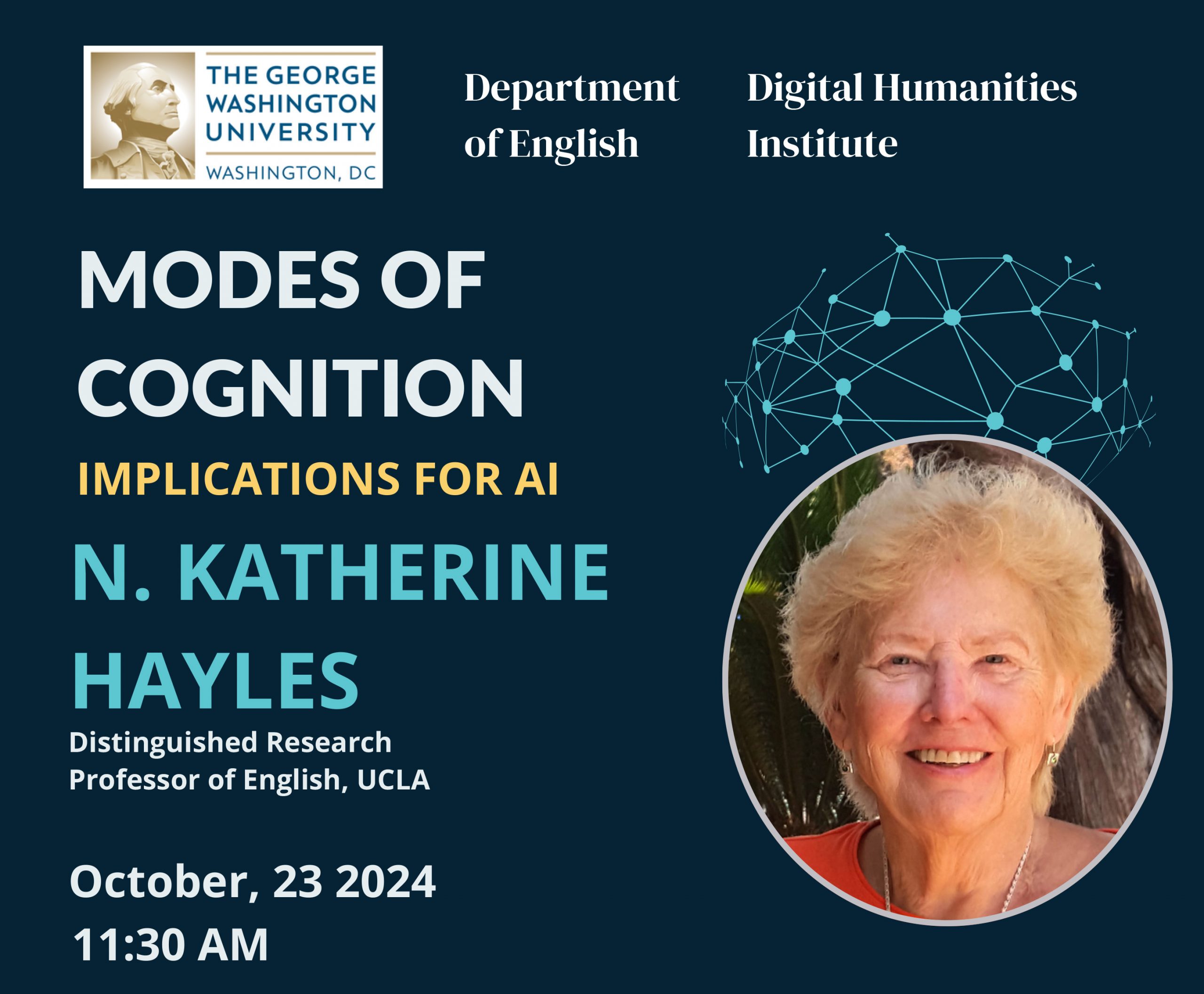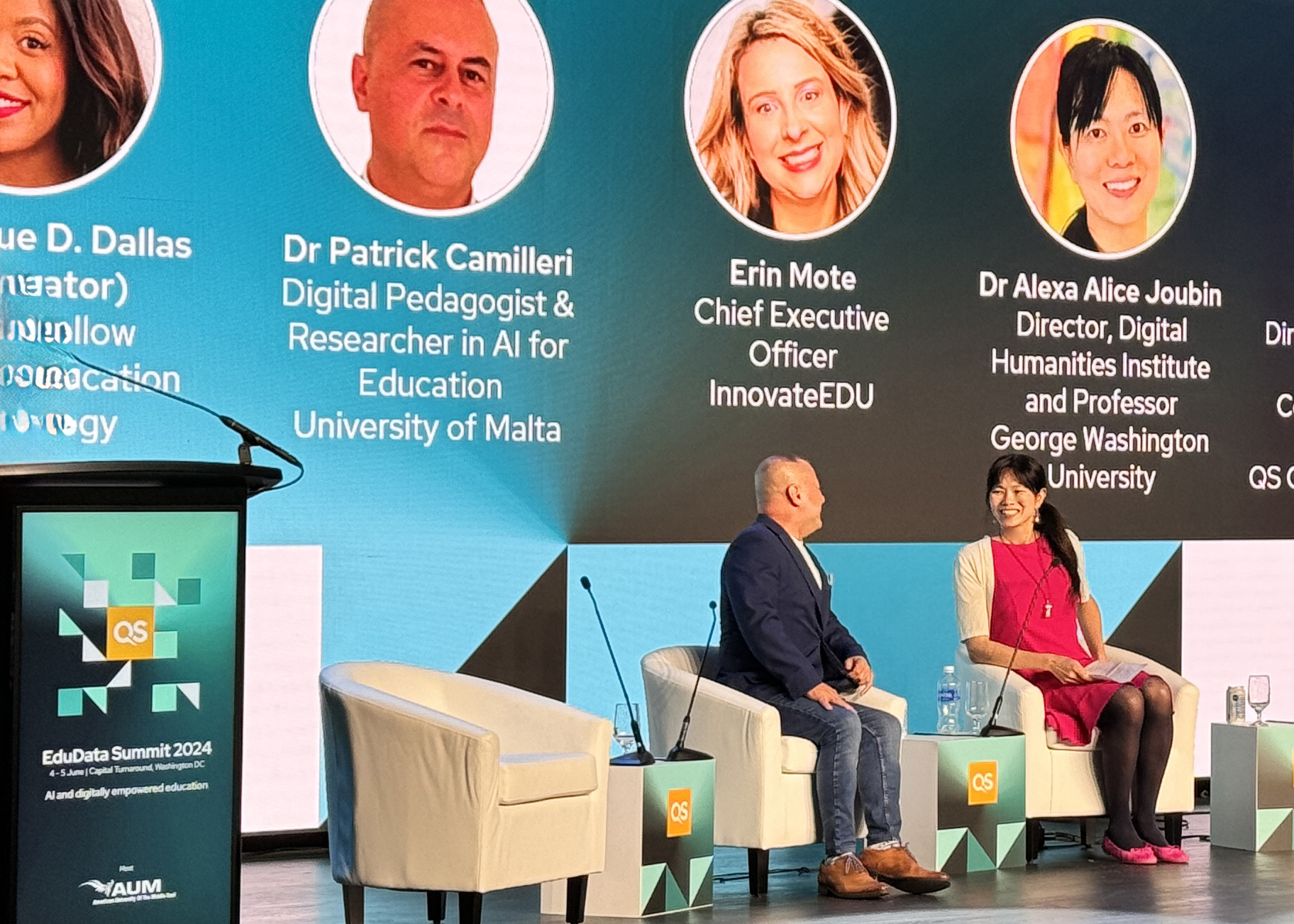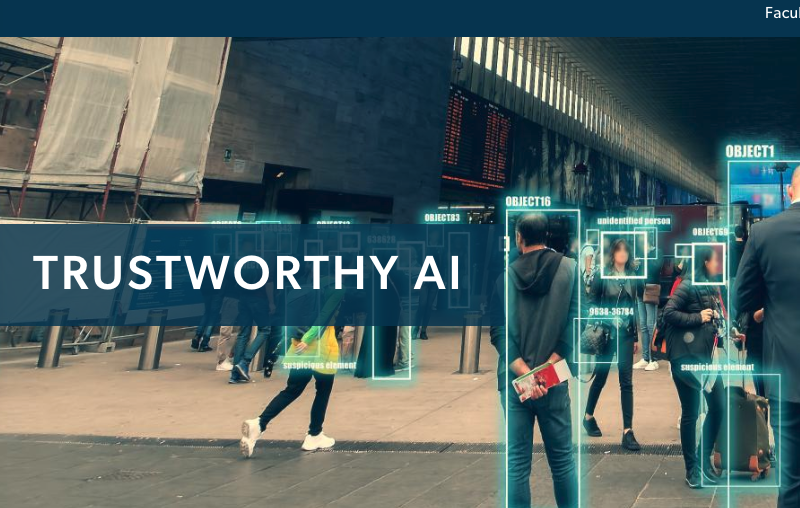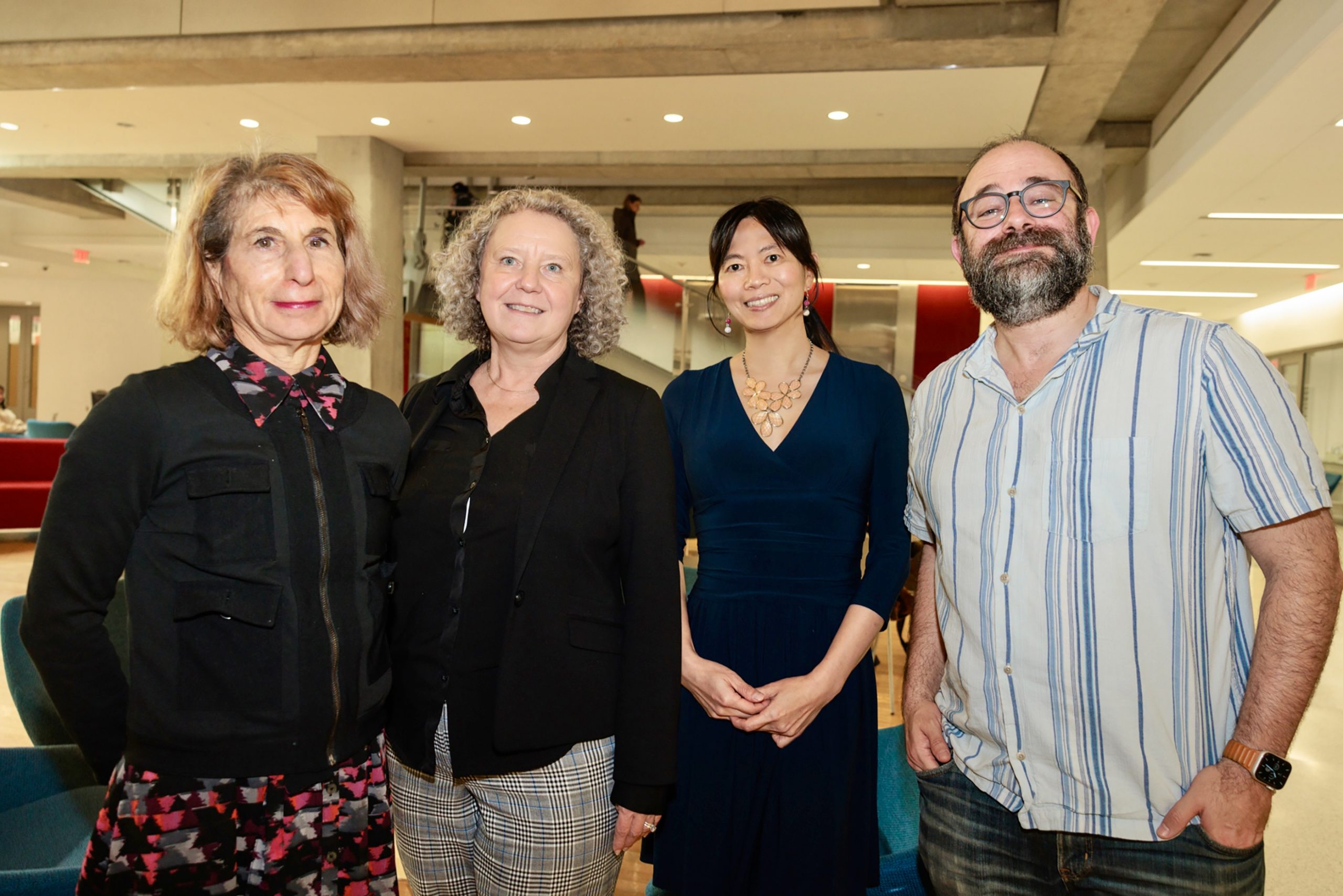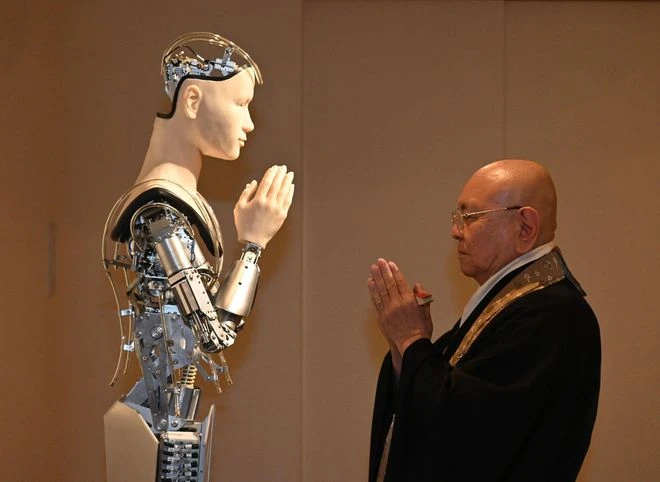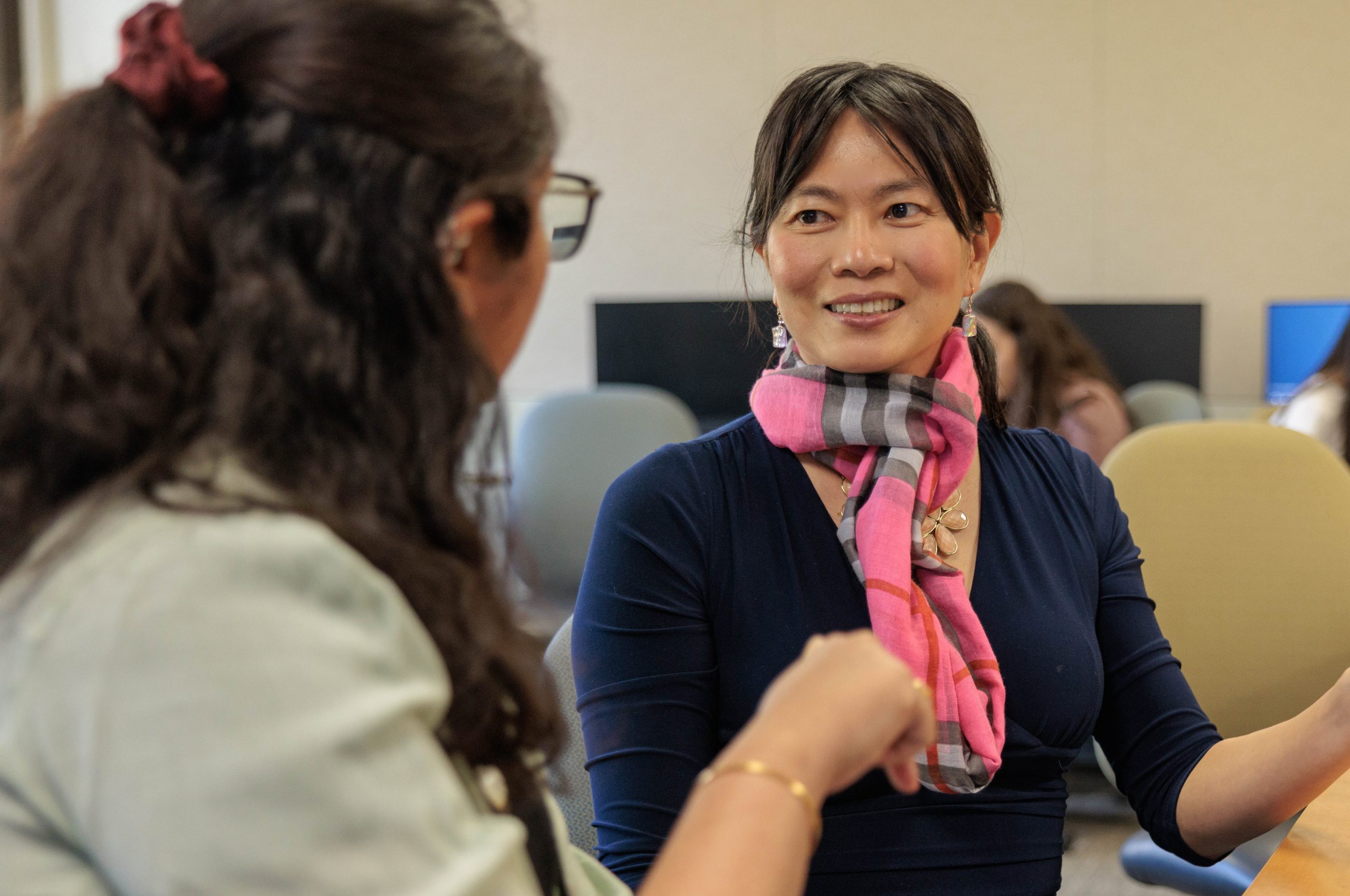AI Web Developer Position
We are hiring! Join us as an AI / web development research assistant in summer 2025 to scale up our open-access AI platform
Modes of Cognition by N. Katherine Hayles
Modes of Cognition: Implications for AI Public lecture by Professor N. Katherine Hayles, 11:30 am, Wednesday October 23, 2024 In-person and Zoom hybrid …
QS Summit on AI and Higher Education
According to Professor Alexa Alice Joubin, meta-cognition and critical questioning skills are among the most important competency in the era of artificial intelligence. Prof. Joubin spoke at the QS Summit.
In what senses might AI be theorized as a type of RenAIssance technology of re-generation that connects early modern thoughts on mind-body and modern models of ideation? Submit your proposal for our panel on RenAIssance Studies: Techne, Technicity, and Artificial Intelligence at the RSA in Boston, March 20–22, 2025
World Bank: AI, Technology, and Art
During her talk at the World Bank, Alexa Alice Joubin raised questions about the intersectionality of technology and art. Art is front and center in digital transformations of our society today. Art fosters creativity, and creative thinking leads to social change.
Research Assistant Position in AI
George Washington University Trustworthy AI Initiative and Digital Humanities Institute seek to employ a research assistant who is proficient in web development and generative AI tools.
Trustworthy AI Initiative
In April, 2024, George Washington University launched the Trustworthy Artificial Intelligence Initiative. Here is the news story. The Digital Humanities Institute is …
Joubin Named the Inaugural Public Interest Technology Scholar
Susan Ariel Aaronson, Pamela Norris, Alexa Alice Joubin, and David Karpf Digital Humanities Institute founding co-director Alexa Alice Joubin has been named …
The Craft of Writing in the Age of AI
Generative AI tools stake claims to anonymized, collective authorship through machine-generated texts that are similar to patterns in the datasets they trained on. The notion of authorship faces new challenges of delineating the agency, knowability, and intentionality of written words. Led by Alexa Alice Joubin (English and Digital Humanities Institute) and Kylie Quave (University Writing Program and Anthropology), this session explores our society’s evolving relationship to written words and the future of the craft of writing.
AI and Religion
There are cases of AI monks and priests. Though religious institutions have not always behaved ethically in the past, they have centuries of experience parsing moral conundrums through the lens of their own belief systems. Prof. Irene Oh from the GW Department of Religion will lead a discussion of the many ways that artificial intelligence is changing the meaning and practice of religion.
Generative AI from Performance Studies Perspectives
What is missing from the current debate are insights from performance studies. Since ChatGPT remixes statistically most likely combinations of words, its outputs are in fact a form of theatrical performance. It draws on users’ prompts and the publics’ collective memories to produce improvised performances, within specific parameters, for its user-audiences.
Professor Uses AI to Teach Shakespeare and Critical Theory
Alexa Alice Joubin views it as her responsibility to teach students how to use ChatGPT responsibly, not as a shortcut. “In our inquiry-driven culture, we need to know how to retrieve information through queries,” Joubin said. “Further, democratic society needs good question-askers as much as good problem-solvers. Asking key questions helps to advance scholarly fields, and students develop editorial, curatorial and critical questioning skills that are employable skills and the foundation of civil society in an era of ChatGPT.”


